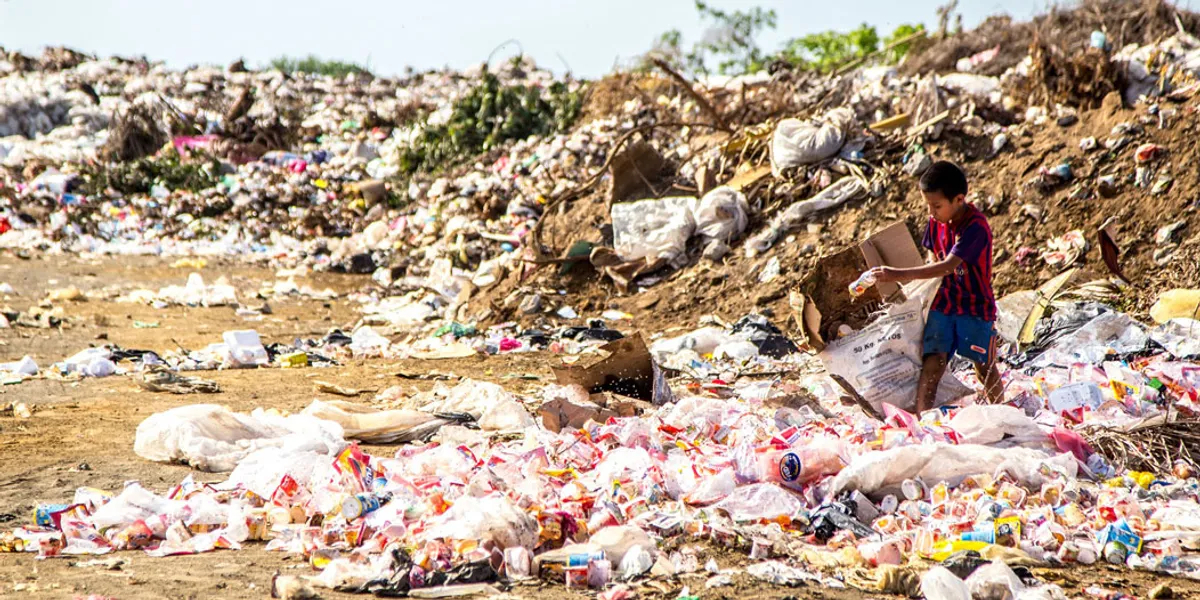There are many effects of wastes as human daily activities generate a lot of waste from the products they use. The massive waste always finds its way into the air, ground, and water every year. As a result, the increase in population and industrialization has increased the amount of waste generated from different societies.
The increase in economic activities and food consumption of humans generate a lot of waste that tends to cause a critical problem in the countries and human life. Solid waste in particular has become a major threat to the environment.
During the last case study conducted by the UNDP in 1997, 151 mayors from different parts of the world ranked solid waste as the 2nd most dreaded waste.
Improper disposal of waste and illegal movement of waste can harm human health and the environment. These negative effects could be due to the ways we handle and dispose of waste differently in the soil, water, and air.
Waste that is not disposed of adequately/ properly or not treated well may cause health problems for humans living in various surroundings in the area the waste was disposed of.
The leakage from this waste ends up contaminating the soil, and water and produces air pollution and other waste caused by mismanagement which can also affect humans and the environment. Therefore managing waste in every environment is mandatory and important.
Effects of Waste and Improper Waste Disposal
Many of us claim we have knowledge of waste management and we are not victims of improper disposal of waste. But surprisingly, despite our claims and our best effort, the damage has continued.
We have journeyed in different ways to ensure that we are not affected by this waste, but unfortunately, we are still victims of this waste, we have come to realize that we are been affected by this waste physically and environmentally.
The negative effect of waste does not only ends in affecting our health or environment but it also affects our economy, the government spends a lot of money to ensure the avoidance of the negative effects of improper waste management.
Moreover, the animals also depend on our environment, because from the soils in our environment comes what they feed on and they also breathe the air we breathe and live in the same area as we do.
We are aware of different methods of waste management: incineration, recycling, landfills, etc. yet we still find ourselves living in a world filled with waste and being affected by it.
The Environmental and Health Effects of Wastes
Let’s look at how this waste has affected our environment and health.
1. Water Contamination
Water is a very unique and excellent substance, it can contain different dissolved chemicals. As a result of this, while flowing, the waters can pick up pollution along the way. It often carries dissolved substances like gases and chemicals.
Rainfalls that are easily mixed with toxic liquid drops into the water streams to flow and end up in the nearby water bodies. As a result of this, the neighborhood lake, taps, or wells are contaminated by these waters and open to dangers.
All the living organisms living nearby, that make use of these waters, get infected. Now, this waste has affected the environment and the health of humans.
2. High Degree of Weather Caused by Climate Change
Harmful gases from the greenhouse are gotten from decomposing waste. These gases rise in the atmosphere and trap heat. This, therefore, causes a drastic weather reaction in the form of storms and typhoons.
We are also affected by the level of precipitation in the air from acid rain to serious hail storms or global warming. This, therefore, spreads out to our various areas causing radioactive pollution.
3. Air Contamination
Occasionally, we burn papers and plastics at the landfill, causing landfill gas, these chemicals released come together and contribute to the ozone layer and also hurt the surrounding and the human population. Methane gas and dioxin released in the air have been proven to harm us.
All of this places a negative role on human health and the environment if this waste is not properly managed.
4. Human Damage
Let’s look at the amount of population we have, where we do not consider any scientific waste management system. Some places may possess a waste management system but there is no proper disposal area.
Then we find many people who are at risks, such as children and those who live near such facilities, Waste disposal workers, and Employees whose workplaces manufacture or come in contact with these waste materials. The fire at the landfills affects them.
Whether it’s coming from the air or water, those landfill gases have been exposed, thereby causing cancer, respiratory issues, visibility problems, and the explosion of cans, putting all these people nearby at risk.
In addition, when we come in contact with waste, it causes skin irritation and blood infections. We are also infected with the disease from flies which are carriers of illness after breeding on solid waste. With regards to mosquitoes, we all know that after feeding on dead fish, they move to sewage, rainwaters, cans, decayed foods, and lots more, they carry and spread diseases such as malaria and dengue.
There are lots of disease pests, such as rats, who also infect our meals, waters, and facilities after feeding on waste, they spread diseases such as Hantavirus pulmonary syndrome, leptospirosis, rat-bite fever, etc.
Therefore, waste management is our responsibility, because if we can manage our waste and dispose of them properly, we will benefit from it and suffer less from all the effects mentioned above.

